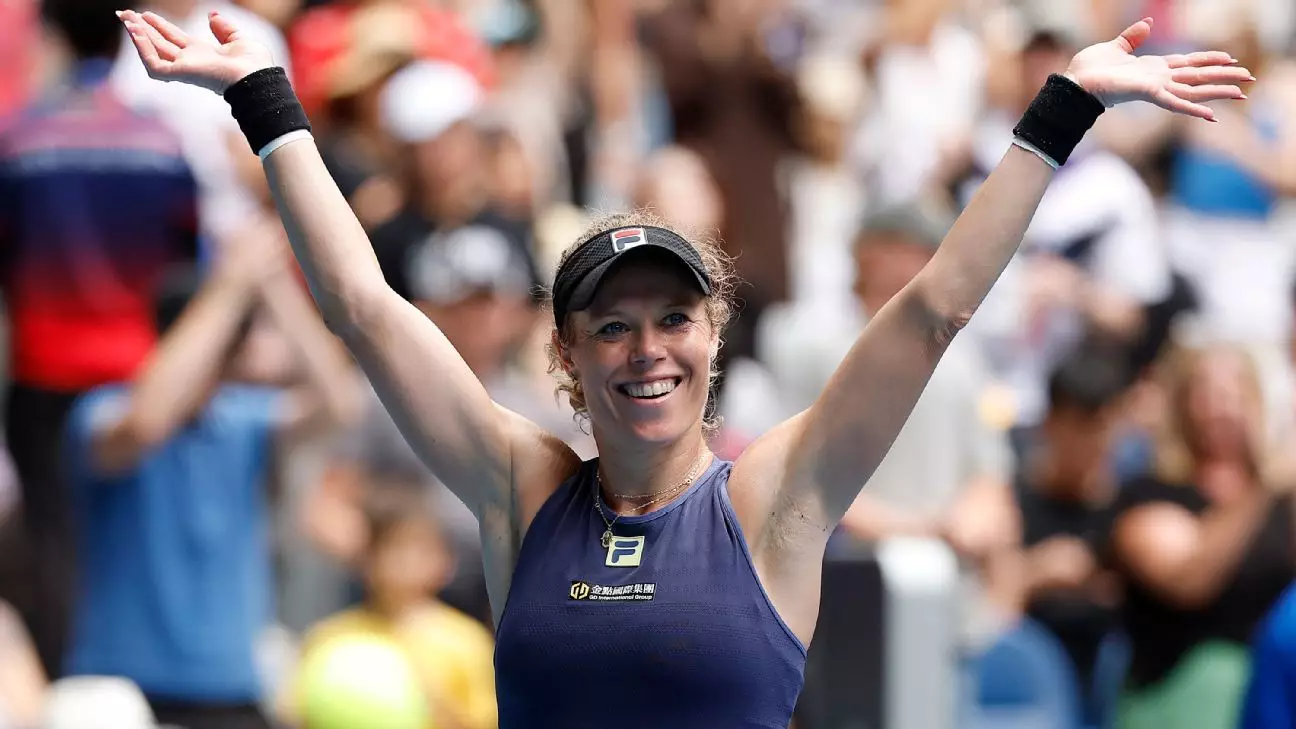In a surprising turn of events, the early rounds of the 2024 Australian Open witnessed a major upset as Laura Siegemund defeated fifth-seeded Qinwen Zheng. The match, played at John Cain Arena, showcased Siegemund’s relentless aggression and tactical prowess, leading to a score of 7-6 (3), 6-3. This result marks a significant deviation from Zheng’s incredible performance in the previous year, where she finished as a finalist, ultimately losing to Aryna Sabalenka. Once a rising star, Zheng now finds herself grappling with the pressures of expectations amid the evolving landscape of women’s tennis.
Last season was monumental for Zheng; she not only reached the Australian Open final but also claimed the Olympic gold in Paris and made a commendable run at the WTA Finals. However, expectations can weigh heavily on an athlete, and the pressure to replicate previous successes is immense. In her first tournament of 2024, Zheng struggled against a resilient opponent who appeared determined to capitalize on any weakness. The early change of shoes that she needed in the second set and a time warning from the chair umpire for her serve may have contributed to her uncharacteristic performance. Zheng openly admitted that “it felt like today was not her day,” highlighting the mental hurdles she faced in this match.
Siegemund, at 36 years old, displayed a remarkable tenacity during the match. Known for her ability to unsettle younger players, she certainly did just that against Zheng by taking charge from the very start. Her impressive win categorizes her as the third-oldest player in the last 30 years to defeat a WTA top-five player at the Australian Open, joining the ranks of legends like Serena Williams. Siegemund’s tactical approach, which involved aggressive returns and an ability to dictate points, was coupled with a fearless mindset—an attitude that allowed her to embrace the role of the underdog and seize her moment without fear of repercussions.
Tactics and Mental Fortitude
Zheng’s typical strategies seemed stifled under the pressure of Siegemund’s game. While she is recognized for her powerful play, she appeared tentative, particularly in crucial moments. For instance, her conservative choices allowed Siegemund to seize opportunities and rally points. After the match, Zheng reflected on the frustrating nature of her performance, emphasizing the importance of “details in important points.” These small missteps can dramatically alter the course of a match, especially in a Grand Slam setting where every point carries weight.
Siegemund’s mental approach contrasted sharply with Zheng’s performance. The German player noted, “I knew I just had to play more than my best tennis. I had nothing to lose.” This assertiveness allowed her to swing freely, setting the tone of the match early on and maintaining hope even when she encountered brief lapses in focus.
This upset not only raises questions about Zheng’s ability to handle pressure but also serves as a testament to Siegemund’s tenacity and skill. The match has significant implications for both players moving forward; for Zheng, it may necessitate a reassessment of strategies and mental preparation. For Siegemund, this victory serves as a confidence boost, perhaps inspiring further success in the tournament as she aims to break her personal record of reaching beyond the third round at the Australian Open—something she has yet to achieve in her previous attempts.
As the tournament progresses, the implications of this match linger. Zheng, faced with the challenge of overcoming this setback, must regroup and harness the experience to propel herself forward. Meanwhile, Siegemund’s remarkable display of skill against a top competitor reminds fans and players alike of the unpredictable nature of sports, where determination and strategy can upset even the most knowledgeable predictions.


Leave a Reply